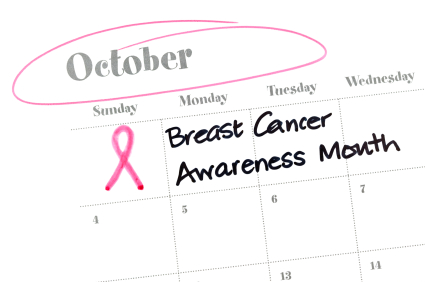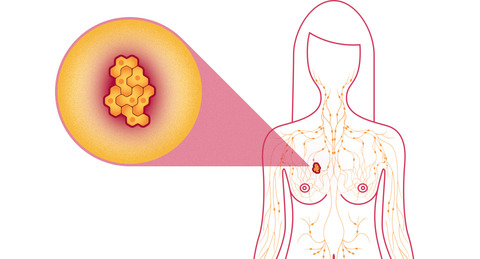 All over the world the month of October is Breast Cancer Awareness month which is an annual month long campaign aimed to increase awareness about Breast Cancer which is the most common cancer in women (after skin cancer which affects both men and women equally)
All over the world the month of October is Breast Cancer Awareness month which is an annual month long campaign aimed to increase awareness about Breast Cancer which is the most common cancer in women (after skin cancer which affects both men and women equally)
Unfortunately in this part of the world we do not have accurate data and statistics on the incidence of breast cancer but it’s highly likely that you know at least one person who has been affected by this deadly cancer.
There’s the saying that prevention is better than cure, however in the case of breast cancer there is no sure fire way to prevent it but it is still important to do regular screening exercises because it is easier to treat and cure when detected early. According to the American Cancer Society “When breast cancer is detected early AND is in the localised stage, the 5yr relative survival rate is 100%”
Most cases of breast cancer are discovered in women over 50yrs of age but many younger women are also affected therefore the recommendation is that starting from age 20 every woman should have a breast exam by a healthcare provider every 3 years and then a screening mammogram every two years from age 40. Breast tissue in younger women is more dense and so a mammogram is not as effective in this population and a breast ultrasound is preferred. However for women at higher risk, e.g women with first degree relatives who have had breast cancer are advised to start screening at an earlier age. These are only general recommendations, it is important to talk to your doctor about which screening tests are right for you and when to have them.

As stated earlier, there’s no way to prevent breast cancer but certain factors can influence your breast cancer risk, even though most women who develop breast cancer do not have any known risk factors or a history of the disease in their families. However, according to the Centre For Disease Control (CDC) you can help lower your risk of breast cancer in the following ways—
- Keep a healthy weight.
- Exercise regularly (at least four hours a week).
- Get enough sleep.
- Don’t drink alcohol, or limit alcoholic drinks to no more than one per day.
- Avoid exposure to chemicals that can cause cancer (carcinogens).
- Try to reduce your exposure to radiation during medical tests like mammograms, X-rays, CT scans, and PET scans.
- If you are taking, or have been told to take, hormone replacement therapy or oral contraceptives (birth control pills), ask your doctor about the risks and find out if it is right for you.
- Breastfeed your babies, if possible.
Genetic mutations in two familial breast cancer genes called BRCA1 or BRCA2 have also been found to confer increased risk for breast and other cancers. These genes are normally responsible for producing tumor suppressor proteins which help repair damaged DNA and when there’s an interruption in this process the risk of cancer is increased. But still genetic mutations only account for 5-10% of ALL breast cancer.
With all this it’s clear that there is really no clear cause so what remains important is screening for early detection so tell you mother, tell your sisters, tell your friends. Spread the word and let’s help fight breast cancer together.






